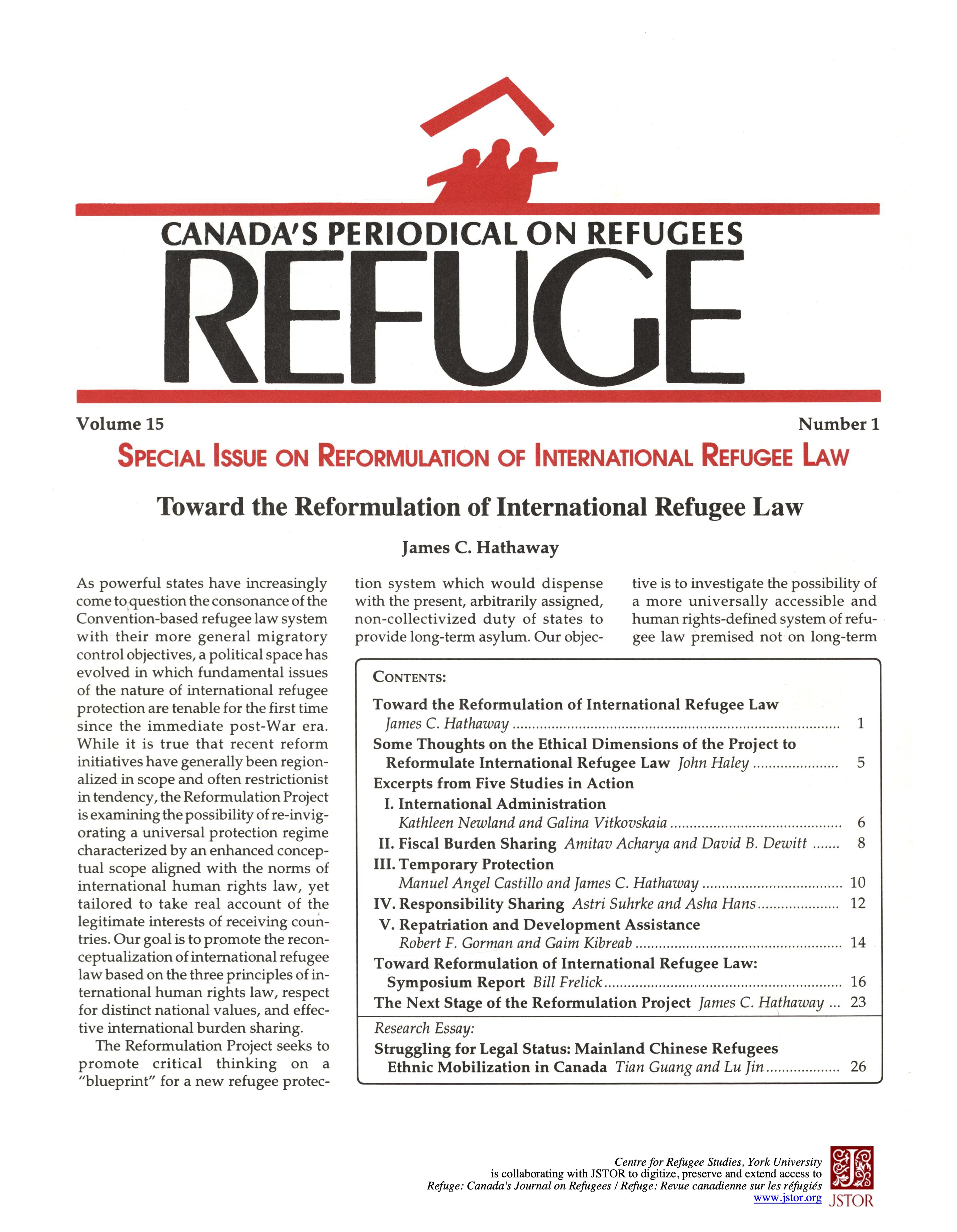Struggling for Legal Status: Mainland Chinese Mobilization in Canada
DOI:
https://doi.org/10.25071/1920-7336.21869Keywords:
legal status, Chinese immigrants, policy, Canada, IRB, Mainland Chinese rejected refugee, collective behaviour theory, fearAbstract
Between the end of 1993 and the spring of 1994, about 5000 Mainland Chinese rejected refugee (MCR) claimants mobilized themselves in Canada to lobby the Canadian government to make a special policy for them so that they could be considered for landed immigration status. The mobilization, launched by the Mainland Chinese Refugee Organization (MCRO), won wide sympathy and support from the Chinese community and mainstream society in Canada. The MCRs stated their goals and demands through Chinese ethnic media and mainstream media, started a dialogue with the Canadian government and even staged a protest in front of the Parliament Buildings in Ottawa. On July 7,1994, the Minister of Citizenship and Immigration Canada issued a policy, known as the Deferred Removal Orders Class (DROC) program, designed for claimants in similar situations. In this paper, we examine the process of the movement, analyze its features, and discuss its effects on the Chinese diaspora community in Canada. The movement emerged out of the 'fear" of a group of Chinese claimants, caused by the threat of being deported from Canada. The success of the movement was based on the mobilization of ethnic and social resources by the MCRO.Metrics
Downloads
Published
How to Cite
Issue
Section
License
Copyright (c) 1996 Tian Guang, Lu Jin

This work is licensed under a Creative Commons Attribution-NonCommercial 4.0 International License.
Refuge authors retain the copyright over their work, and license it to the general public under the Creative Commons Attribution-Non Commercial License International (CC BY-NC 4.0). This license allows for non-commercial use, reproduction and adaption of the material in any medium or format, with proper attribution. For general information on Creative Commons licences, visit the Creative Commons site. For the CC BY-NC 4.0 license, review the human readable summary.







